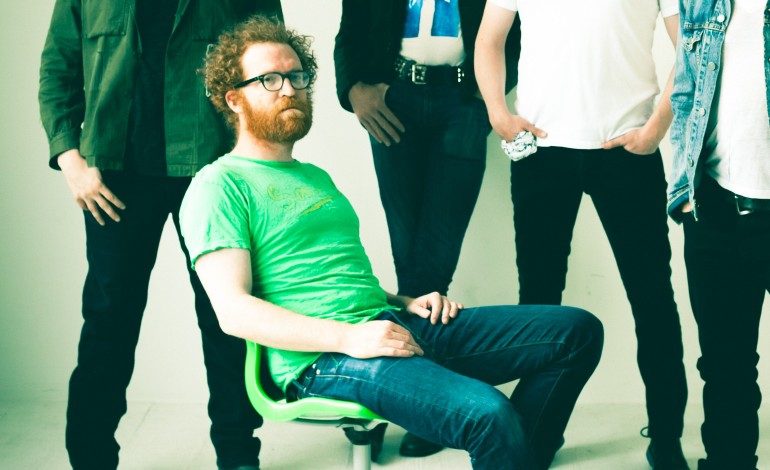

For over a decade and a half, Blitzen Trapper have been among the most well-regarded independent artists in the country. Hailing from the Pacific Northwest, the band blended alternative country and folk with a penchant for experimentation. Along with a fervent dedication to touring, over the course of eight albums the band has built up one of the most rabid fan-bases in the independent music scene. In mid-October, the band’s guitarist (in addition to playing many, many other instruments) Marty Marquis released a solo album, titled Skookum Sound. Marquis took the time to discuss his main band’s history as well as giving a background on the solo album and his touring plans.
How was Blitzen Trapper born? Can you tell a little bit of the story of how the band met and came together?
Marty Marquis: I met Eric Earley in the mid-90s in Lookout Mountain, GA. We were both attending a weird liberal arts school there and were two of the only kids from the Pacific Northwest and hit it off. He quit school after a year and moved back to Oregon, bought a four-track, and started doing his thing. When I moved to Portland after graduating in 1999 I looked him up and he invited me to join a band he was starting with a bunch of guys he knew from growing up together in Salem, Oregon. We were called Garmonbozia for the first few years.
What role has Blitzen Trapper played in your solo work? I noticed they feature on at least one of your tracks as Marty Marquis; have they been supportive? How so?
MM: I’ve learned most of what I know about music from working and playing with Blitzen, so it’s safe to say that without my experience in the band I’d be incapable of doing much other than stringing together some chords and playing folk music. Which is cool in its own right but I wanted more. In 2011 we fired our keyboard player and I was tasked with picking up his role, which was a big challenge for me – I went from zero to playing on national TV in about five months–but it led to my own personal songwriting renaissance. The band has played a few of my tunes over the years but I’ve never pushed my music on them; (Eric) Earley has more than enough great material for one band.
How has your hometown of Portland, OR influenced your musical style and lyrics? What would you say is your paramount inspiration?
MM: I’ve been living here since 1999 so it’s hard to figure out what is Portland and what’s just me anymore. I grew up in Yakima, Washington, which is decidedly less liberal and supportive of the arts but I think my lyrical hang-ups with nature and the Pacific Northwest are more due to growing up there than living here. I think if anything Portland artists put a premium on process over outcome so I’ve felt relatively free as an artist to create things that might not have any market viability.
My paramount inspiration? Beauty, whether it’s visual or literary or musical or a more subtle emotional sort of beauty, it’s the main thing that keeps me plugged into the human condition and reality.
Can you describe your creative process a little bit? Do you typically come up with the lyrics or the instrumental aspect of a song first?
MM: I write songs a lot of different ways. Sometimes it’s from tinkering around on an instrument and I stumble upon some interesting harmony and build from there. Or I’ll program a beat and bass line on the sequencer and work from that. Or many times I’ll be haunted by a melody (who knows where these come from) and after verifying that it’s not somebody else’s tune I’ll figure out the harmony and write some lyrics for it. I never really start with lyrics but sometimes I’ll begin with a literary conceit or a story I want to tell, like the tale of Hugh Glass.
Have you been playing any shows or festivals as a solo artist?
MM: I play solo when I can, I’ve done sets as far afield as St Paul, MN and Charlotte, VA but haven’t done festivals other than locally. Most of my solo shows have been in the Northwest (Cascadia) and ultimately if I could develop a solo gig that never went further east than Denver I’d be pretty happy. But yeah, I plan on touring Cascadia until I the day I die probably.
